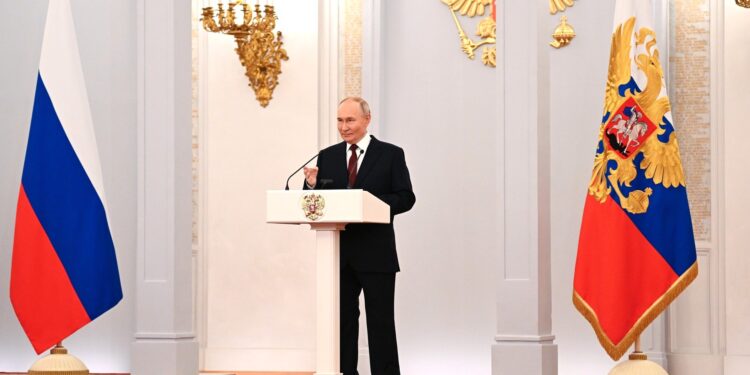Russian President Vladimir Putin expressed his expectations that it would be difficult to implement any new agreement to transport natural gas through Ukraine, noting the impact of the ongoing war since February 2022 on the possibility of reaching new understandings.
In statements reported by the Russian TASS agency on Thursday evening, Putin said that Gazprom, which is responsible for producing and exporting most of Russian gas, faces challenges related to long-term contracts that are “difficult to quickly modify to meet sudden changes.”
End of agreement
Putin noted that the long-term agreement to transport gas via the Ukrainian pipeline to Europe, which dates back for years, expires this month.
He added, “There are potential alternatives that include transporting gas through countries such as Hungary, Slovakia, Turkey, or Azerbaijan. However, implementing these alternatives requires significant efforts due to the complexities associated with current contracts.”
Putin stressed that Russia is looking for alternative ways to transport natural gas, including through Poland, as part of its strategy to reduce dependence on Ukrainian infrastructure.
Ukraine’s position
For his part, Ukrainian President Volodymyr Zelensky stated earlier last October that his country would not allow the transportation of Russian gas through its territory without clear guarantees that the Kremlin would not benefit financially from this. This position comes in light of continuing tensions between the two countries.
According to the data, during 2023, Russia sent about 15 billion cubic meters of gas through Ukraine, which represents only 8% of the peak of Russian gas flows to Europe before the outbreak of war.
Currently, Russia transports about 42.2 million cubic meters of natural gas every two days through Ukraine, according to Gazprom.
Background of the crisis
Since February 24, 2022, Russia has launched a military attack on Ukraine, conditioning the end of the attack on Kiev abandoning joining Western military entities, which Ukraine considers direct interference in its internal affairs.
These ongoing tensions cast a shadow over economic relations between the two countries, including the energy sector.



